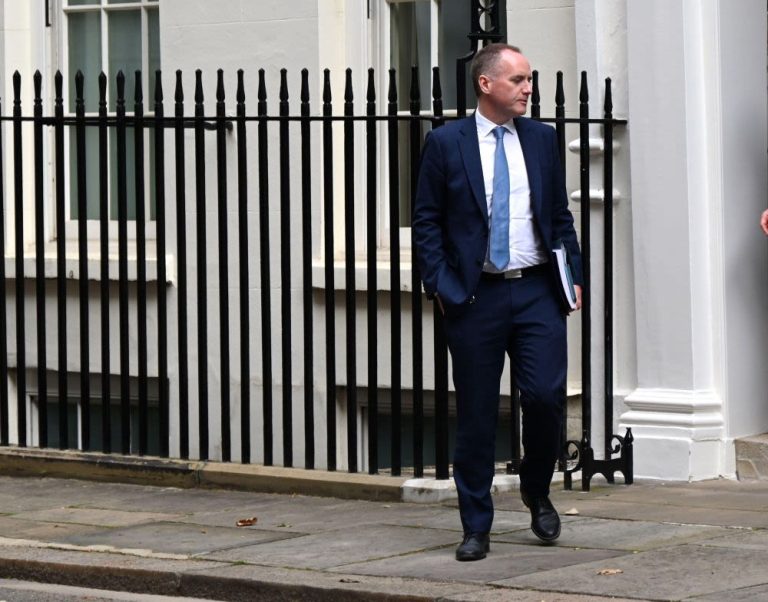
2T93ARK London, UK. 22 November 2023. Alfred Dubs, Baron Dubs. in Westminster. Credit: amer ghazzal/Alamy Live News
An amendment born from personal history
Lord Alf Dubs, a senior Labour peer and former child refugee brought to Britain on the Kindertransport in 1939, has tabled a powerful amendment to the government’s new Border Security, Asylum and Immigration Bill. Drawing on his own experience of fleeing Nazi persecution, Dubs aims to restore and expand legal family reunion routes for refugee children, arguing that every young person deserves “a decent life” rather than a dangerous, lonely journey to the UK.
Key features of the Dubs amendment
- Family reunion rights: Enables unaccompanied refugee children outside the UK to apply to join close relatives already settled here.
- Financial relief: Removes existing fee and evidence requirements that make reunion prohibitively expensive or administratively impossible.
- Cross-party backing: Co-sponsored by crossbench Lord Kerr, Liberal Democrat Baroness Hamwee, and the Lord Bishop of Chelmsford, reflecting broad support in the Lords.
Under Dubs’s proposal, children with a qualifying familial tie—be it a sibling, uncle, aunt or grandparent—would gain a streamlined path to safety and stability on British soil.
Why the amendment matters
Since Brexit, the UK lost the automatic Dublin system that once allowed asylum-seeking minors in one EU nation to join family members in another. That arrangement was quietly phased out two years ago, leaving thousands of vulnerable children stranded abroad. Many now risk perilous Channel crossings or remain isolated in makeshift camps, unable to navigate complex visa rules.
Dubs emphasises that the amendment is not an open invitation to all refugees, but a targeted measure to protect those most at risk: unaccompanied minors with genuine family links in the UK. By removing financial and bureaucratic barriers, it shifts from punitive deterrence to compassionate protection.
“A life where they can begin to flourish”
“These children have faced unimaginable trauma,” Lord Dubs told PoliticsHome. “They deserve not only to survive, but to thrive—living in a safe home with education, healthcare and caring relatives. That is what ‘a decent life’ means.” His words resonate deeply: education interrupted by conflict, family torn apart, the constant fear of exploitation.
By granting legal routes for reunion, Dubs argues the amendment will pull children out of extremis and allow them to rebuild their lives alongside loved ones, rather than chase false rescue through small boats or people traffickers.
Charities hail the proposal
The Refugee Council’s Chief Policy Analyst, Jon Featonby, praised the amendment as “a crucial step to fill one of the biggest gaps” in Britain’s refugee response. He noted that safe and legal family reunion is a cornerstone in international protection frameworks, yet “it is glaringly absent from current UK law.”
Featonby added: “This amendment would allow children to join siblings, uncles, aunts or grandparents who have already reached safety here—cutting out the dangerous and costly journeys that leave so many children exposed.”
Political and practical hurdles
- Government stance: So far, Home Office ministers have been non-committal, warning that any expansion of family reunion could increase overall immigration numbers.
- Legislative timetable: The amendment faces scrutiny at Report Stage in the Lords and must then navigate the Commons, where MPs may push back on perceived “pull factors.”
- Implementation: Systems and staffing in the Home Office would need urgent scaling to process applications and verify relationships without fuelling backlogs.
Despite these challenges, Dubs and crossbench supporters argue the moral imperative outweighs political risk. An effective reunion scheme could also reduce the burden on asylum intake systems by preventing dangerous irregular arrivals.
Lessons from the past—and a roadmap for the future
Lord Dubs highlights that the original Dubs Amendment of 1999, which secured sanctuary for 3,000 child refugees from Czechoslovakia and Vietnam, set a proud precedent—one worth replicating now. That successful model reunified families and fostered integration, with minimal cost to the public purse.
By restoring a modern version of those protections, Britain could reassert its historic role as a safe haven. Dubs’s amendment offers a clear blueprint: targeted, humane, and legally robust. It reminds Parliament that behind every policy debate lie real children desperate to rebuild their childhoods under a British roof.





